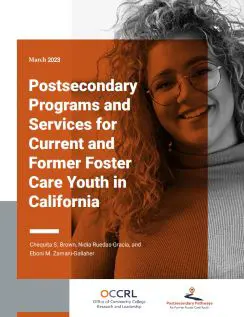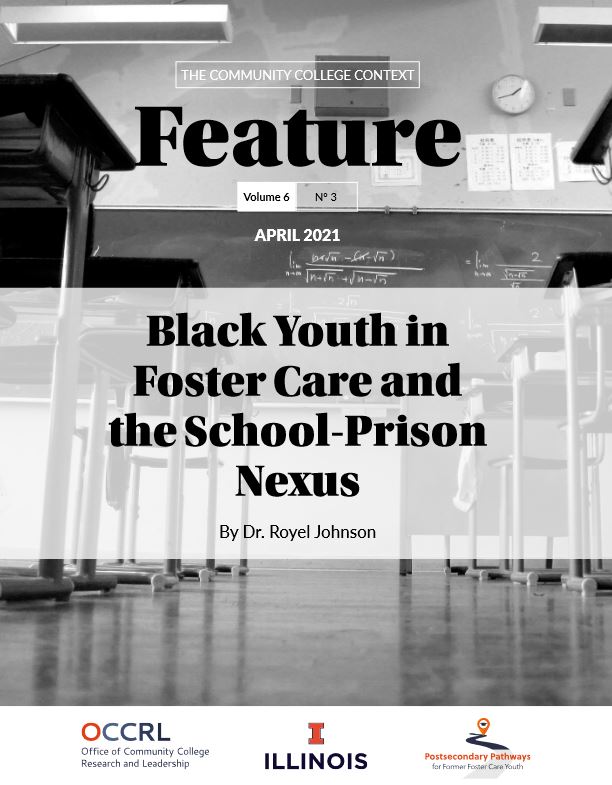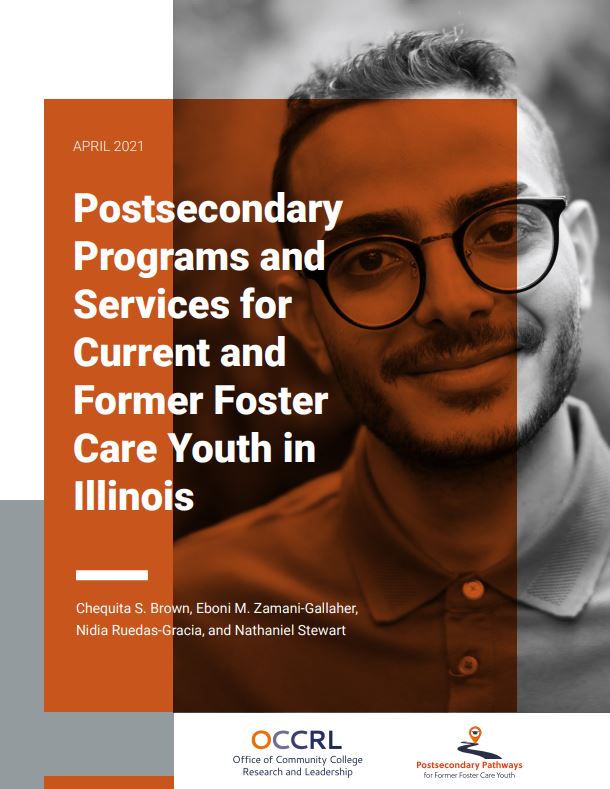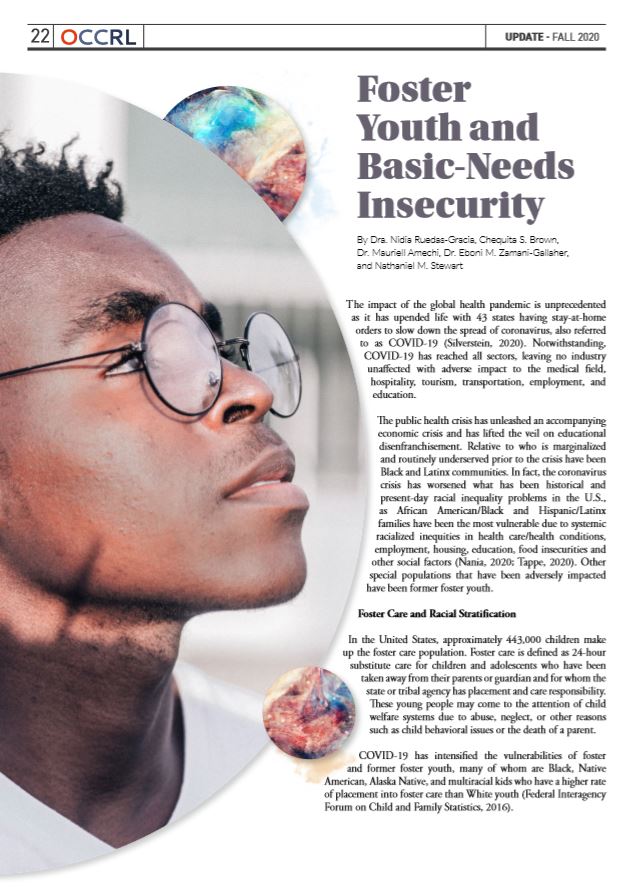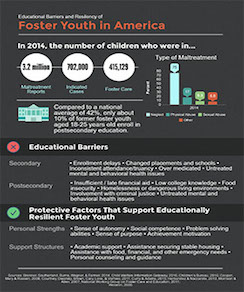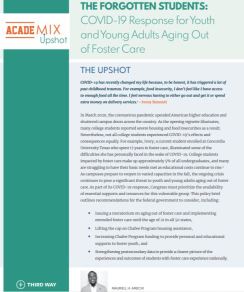
Postsecondary Pathways - for Former Foster Care Youth
This project has been completed and is no longer active.
However, we hope you are able to utilize its resources.
The Postsecondary Pathways for Former Foster Care Youth (PP-FFCY) reflects OCCRL’s commitment to examining and developing postsecondary pathways that support mobility for first-generation, underserved, and minoritized populations, as well as strengthening career pathways to promote seamless transitions from college to careers. This project endeavors to examine postsecondary access, opportunities, and supports for foster youth in Illinois and other states across the county in addressing access and outcomes of FFCY in Career Technical Education (CTE).
Purpose
The Postsecondary Education Pathways for Former Foster Care Youth (PP-FFCY) project is an exploratory study focused on postsecondary pathways for current and former foster youth in Illinois. OCCRL is conducting a comprehensive-needs assessment that provides a descriptive profile of current and former foster youth populations in Illinois; examines postsecondary access, opportunities, and supports for foster youth in Illinois; and addresses disparities in career and technical education (CTE) programs. This project reflects OCCRL’s commitment to examining and developing postsecondary pathways that support mobility for first-generation, underserved, and minoritized populations as well as strengthening and supporting career pathways to promote seamless transitions from college to careers.
Resources
OCCRL aims to increase postsecondary awareness, access, and attainment for current and former foster care youth by providing information on programs and other resources that offer holistic support and services. View the list of postsecondary programs and services.
Strategies to Cultivate a Foster-Friendly Culture on Community College Campuses
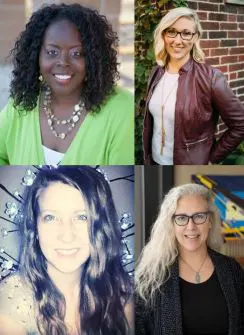 In this episode, Chequita Brown talks with Kate Danielson of the organization Foster Progress, as well as with Anna Wandtke and Tricia Wagner of Rock Valley College in Rockford, Illinois. The group discusses how to cultivate a foster-friendly culture at Illinois community colleges.
In this episode, Chequita Brown talks with Kate Danielson of the organization Foster Progress, as well as with Anna Wandtke and Tricia Wagner of Rock Valley College in Rockford, Illinois. The group discusses how to cultivate a foster-friendly culture at Illinois community colleges.
Navigating College as a Foster Care Alum
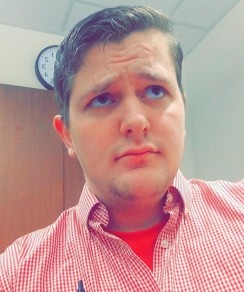 In this episode, OCCRL research assistant Chequita S. Brown talks with Jonathan Stacy, a sophomore at Heartland Community College who is pursuing his studies and a possible career in criminal justice.
In this episode, OCCRL research assistant Chequita S. Brown talks with Jonathan Stacy, a sophomore at Heartland Community College who is pursuing his studies and a possible career in criminal justice.
Listen to the podcast and view the transcript.
Key Elements to Successfully Connecting Foster Care Youth to Educational Resources for Postsecondary Success
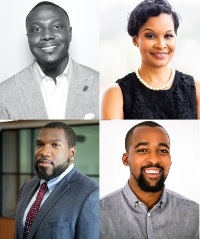 In this episode, Nathaniel Stewart talks with Mauriell Amechi, Regina Gavin Williams, and Blayne Stone Jr. about how the transitions and pathways to postsecondary education are similar and different for Black former foster care students. The scholars also discuss key elements to successfully connect foster care youth to educational resources that help advance the postsecondary education opportunities for this student population.
In this episode, Nathaniel Stewart talks with Mauriell Amechi, Regina Gavin Williams, and Blayne Stone Jr. about how the transitions and pathways to postsecondary education are similar and different for Black former foster care students. The scholars also discuss key elements to successfully connect foster care youth to educational resources that help advance the postsecondary education opportunities for this student population.
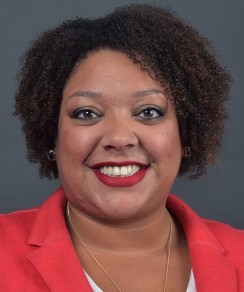
Maddy Day
The Impact of Campus-Based Support Programming on Foster Care Collegians' Postsecondary Access and Retention
In this episode, Chequita Brown of OCCRL talks with Maddy Day about the Fostering Success initiative in Michigan and the impact of campus-based support programming on foster carecollegians' postsecondary access and retention.
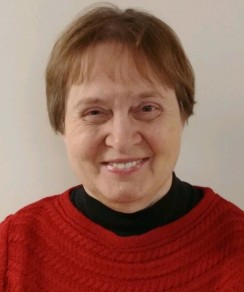
Patricia Palmer
How Youth-in-Care in Illinois Can Access Educational Resources to Pursue a Postsecondary Education
In this episode, OCCRL research assistant Chequita Brown continues the conversation on foster care youth by talking about with Patricia Palmer about accessing available resources in Illinois for youth-in-care who want to pursue a postsecondary education.

Nidia Ruedas-Gracia
Conceptualizing 'Sense of Belonging' Among Students From Historically Minoritized Racial Groups Within Higher Education
In this episode, Colvin Georges Jr., a research associate at OCCRL, talks with Dr. Nidia Ruedas-Gracia about what it means to have a sense of belonging and discusses her research in this area. They also discuss how a sense of belonging affects college students from historically minoritized racial groups.
Postsecondary Programs and Services for Current and Former Foster Care Youth in California
By Chequita S. Brown, Nidia Ruedas-Gracia, and Eboni M. Zamani-Gallaher
This brief highlights postsecondary programs and services in California that support youth in care, in addition to young adults who are aging out of foster care. Read more.
Tracking College-to-Career Pathways for Foster Youth
By Chequita S. Brown
In this OCCRL Thought Paper, Chequita S. Brown relates how tracking the data of students with foster care experience helps to recognize them as a legitimate student population. She offers recommendations on how to do this and conveys the many obstacles that can hinder the academic and career success of foster youth. Read more.
Black Youth in Foster and the School-Prison Nexus
By Royel Johnson
In this OCCRL Feature Brief, Dr. Royel Johnson argues that the foster care system, and more specifically congregate care facilities, are part and parcel to the enhancement of carceral state power. Read more.
Postsecondary Programs and Services for Current and Former Foster Care Youth in Illinois
By Chequita S. Brown, Eboni Zamani-Gallaher, Nidia Ruedas-Gracia, and Nathaniel M. Stewart
This research brief provides an overview of programs and services that helps strengthen postsecondary pathways for current and former foster youth in Illinois. Read more.
Foster Youth and Basic-Needs Insecurity
By Dra. Nidia Ruedas-Gracia, Chequita S. Brown, Dr. Mauriell Amechi, Dr. Eboni Zamani-Gallaher, and Nathaniel M. Stewart
This article discusses how COVID-19 has intensified the vulnerabilities of foster youth and former foster youth, many of whom are Black, Native American, Alaska Native, and multiracial children who have a higher rate of placement into foster care than White youth (Federal Interagency Forum on Child and Family Statistics, 2016). Read more.
(From the Fall 2020 UPDATE on Research and Leadership)
Exploring Equity in Postsecondary Education
By Heather L. Fox, Eboni M. Zamani-Gallaher
This chapter examines how postsecondary practitioners are encouraged to work collaboratively with child welfare agencies and other community-based organizations to identify and implement culturally responsive supports for former foster youth to promote early academic achievement. Read more.
The Forgotten Students: COVID-19 Response for Youth and Young Adults Aging Out of Foster Care
By Mauriell H. Amechi
This policy brief outlines recommendations for Congress to consider regarding the country's COVID-19 response, in an effort to prioritize the availability of essential supports and resources for youth and young adults who are aging out of foster care. Read more.
Program Review Advisory Committee Plans for the Future
The 2023-2024 Program Review Advisory Committee (PRAC) held its first quarterly meeting of the academic year in October with an in-person get-together at Olive Harvey College, an institution within the City Colleges of Chicago.
The goals of PRAC are to improve the efficiency and efficacy of program review and identify challenges, redundancies, and omissions. Committee members look for opportunities to refine the process, craft professional development, and assist in providing supplemental resources to support institutions and practitioners, with the goal of improving the program-review process and outcomes.
Michelle Adams, a PRAC member and dean of student services and staff development at Olive Harvey College, served as the meeting host. The committee of 11 community college administrators, faculty, and practitioners were welcomed by Dr. Brandon Nichols, vice president of academic and student affairs at Olive Harvey College, who reflected on the legacy of the committee’s work. Dr. Lorenzo Baber, director of the Office of Community College Research and Leadership (OCCRL), gave opening remarks that included a call for the committee's continued commitment.
The meeting marked the onboarding of four new members:
- Dr. Ashley Becker, Southwestern Illinois College
- Barbara Leach, Kishwaukee College
- Dr. Kenneth Thompson, Joliet Junior College
- Dr. Kristin Shelby, Shawnee Community College.
The new members joined the following seven continuing members:
- Michelle Adams, City Colleges of Chicago
- M. Lynn Breer, Lake Land Community College
- Dr. Cherie Meador, Moraine Valley Community College
- Dr. Lonetta Oliver, Illinois Central College
- Lori Ragland, Rend Lake College
- Dr. Amanda Smith, Rock Valley College
- Cathy Taylor, Elgin Community College.
The meeting kicked off a yearlong focus on strategic planning and vision-casting goals for the committee’s future. Members are striving to embed collaboration and collective responsibility as they return to in-person engagement after the last few years of conducting mostly virtual work due to COVID. They underscored that for the program-review process to be successful, more collaborative energy from community colleges in Illinois is needed. With this in mind, the committee members dedicated themselves to serving as an example of collaboration and furthering their work together to support institutions.
In previous PRAC meetings, committee members emphasized the need to reprioritize their direction and mission. They shared that the decision to prioritize strategic missions allows the committee’s institutional stakeholders to become informed about the committee’s purpose, values, vision, and strategic plans while inviting continued investment. As a result of this guidance from the Illinois Community College Board (ICCB) and OCCRL staff, the meeting centered on the importance of a strategic plan.
In the first meeting segment, attendees discussed the steps toward a strategic-planning process and developed a timeline to implement and complete a plan before the end of the year. The advisory board members engaged in reflection questions from the perspective of their institutional and/or departmental strategic-plan processes. Facilitator Jewel Bourne, a senior research assistant at OCCRL, said the questions “were designed to help us think through what we should be doing and not doing, as well as how we do it.” Inquiries included:
- What questions did you have in developing the plan?
- What informed your institution or department’s decisions and priorities for the plan?
- Was there anything you felt should be included that was not?
Attendees affirmed that the strategic-planning process is a way of confirming their values and assessing the workgroup’s mission. The process also served as a tool to provide directions and goals for the next three years. For this reason, the second segment of the meeting consisted of attendees engaging in an assessment of the committee’s progress toward its goals. The committee members were asked to envision where they see PRAC heading in five years’ time. The question generated ideas such as starting projects to help determine the effectiveness of program review supporting institutions to meet their goals, creating resources that provide more support for institutional resource-building, and generating processes for improving and increasing institutional buy-in for the committee’s work. The discussion also spawned contemplation on where the committee wants to focus resources. Other discussions covered what equity would look like in the strategic-planning process as well as general committee work.
The final segment of the meeting covered a review of the content and progress on the committee’s forthcoming Program Review Peer Review process and the findings from a recent focus group at the annual ICCB Forum for Excellence.
The next PRAC meeting is scheduled for February 7, 2024.
